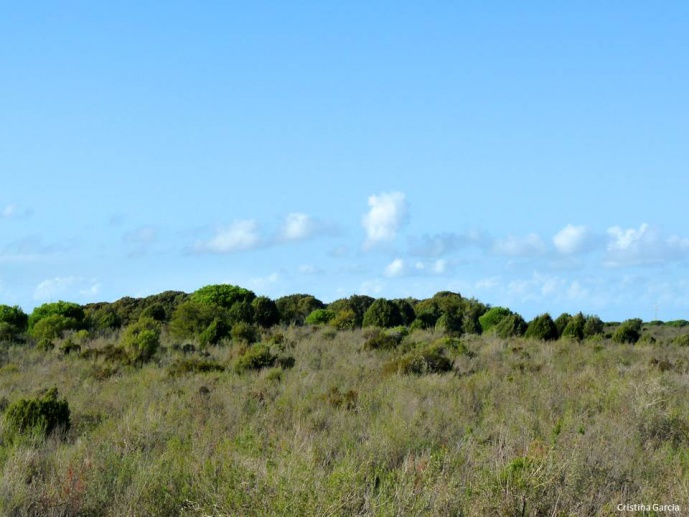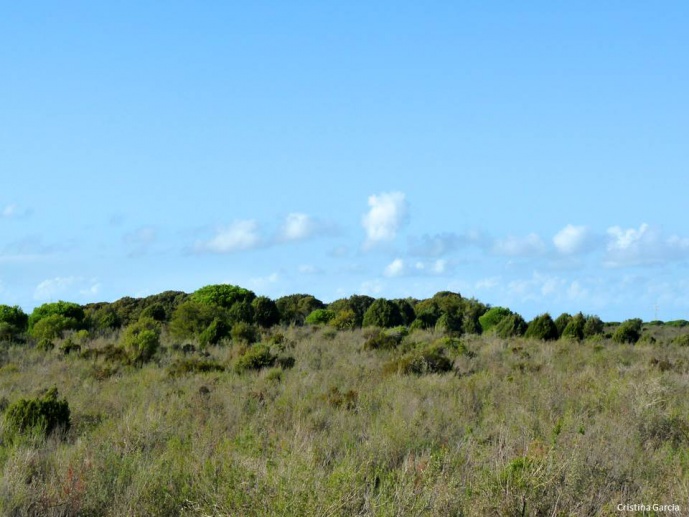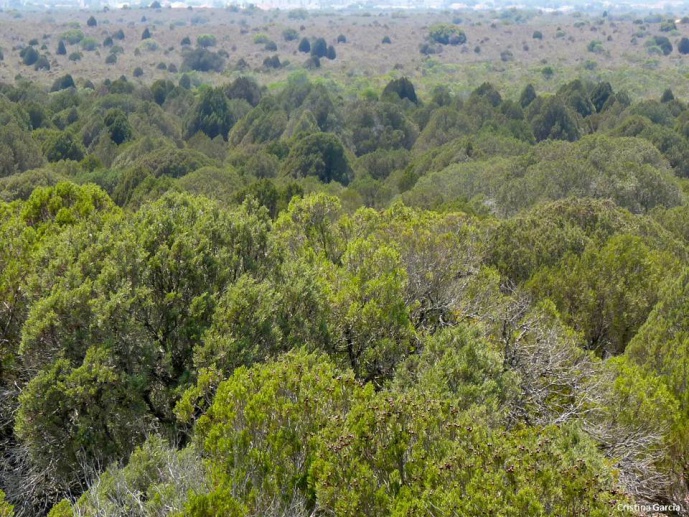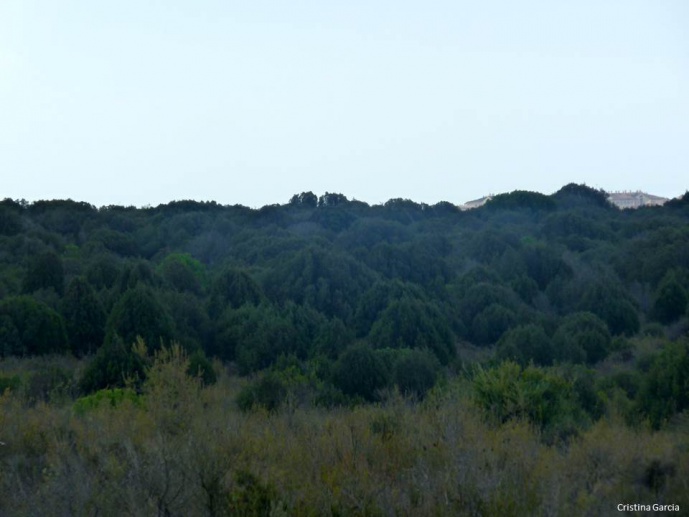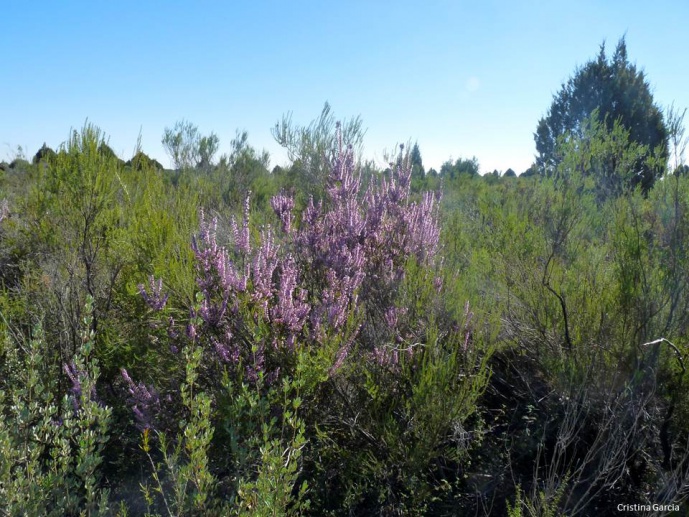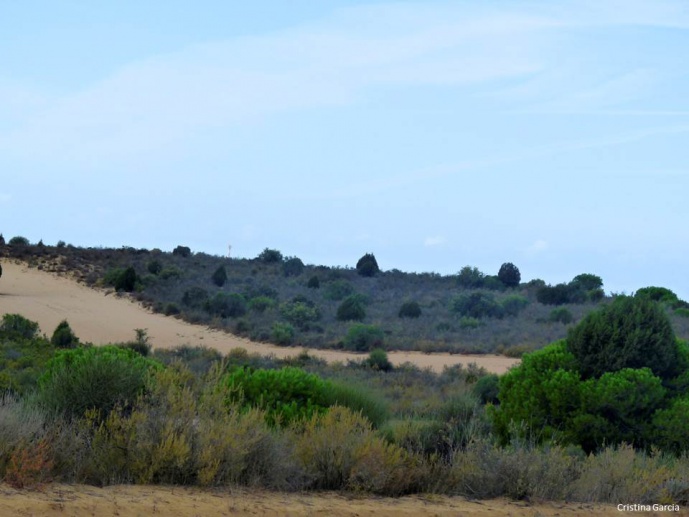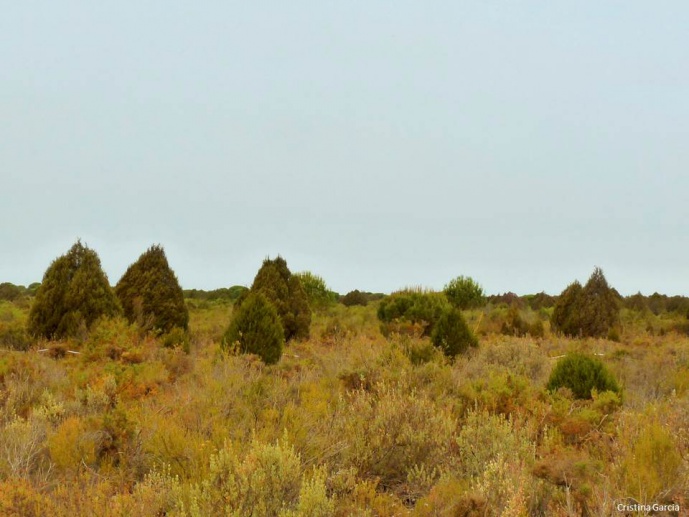PLANTSHIFTS - Fine scale characterization of dispersal kernels to predict range shifts in the Anthropocene (PTDC/BIA-BIC/5223/2014- POCI-01-0145-FEDER-016817)
Plant regeneration’s niche is negatively affected by multiple drivers of global change, which strongly restrict the ability of plant populations to persist and expand. Animal ecologists have documented that global change modifies animal movement patterns, whereas plant ecologists have mainly investigated its effects at the early recruitment stages. As a result, we virtually ignore the long-term outcomes of the key drivers of global change in shaping plant dispersal patterns, which limits our ability to predict prospective distribution range shifts.
Here we propose an integrated study on the effects of fragmentation, defaunation, and climate-driven changes on the dispersal effectiveness of plant populations to predict distribution range shifts and forecast changes in their genetic diversity. Our main working hypothesis rest on the Janzen-Connell (JC) model that articulates the relationship between biodiversity loss, collapse of ecosystem services, and the emergence of distribution range shifts in plant communities across managed landscapes. Specifically we pursue to:
A. Combine molecular markers (SNPs and SSRs), censored tail reconstruction techniques (CTR), and extreme values theory to reconstruct dispersal kernels;
B. Measure the contribution of different dispersal vectors at the species level to the total dispersal kernel by applying barcoding to avian tissue attached to disperse propagules; and
C. Predict distribution range shifts by applying dynamic models under different scenarios of global change.
With domesticated ecosystems advancing quickly, these are pressing questions in Plant Ecology with fundamental theoretical and practical outcomes to address global societal challenges. Theoretically, this study establishes a foundation for realistic predictions of plant distribution range shifts. Our results would provide important insights to implement management strategies of invasive species or assisted colonization plans, among other tasks that require a thorough knowledge of the dispersal effectiveness. Finally, this proposal offers a unique opportunity to promote outreach activities to convey the relevance of biotic interactions as major building blocks of Biodiversity among the general public and early scholars.
Dates: 01 jul 2016 – 01 jan 2020
Total funding: 106 390,00 €
FEDER support: 90 431,50 €
National Funding: 15 958,50 €

Pedro Beja
Pedro Jordano Barbudo
